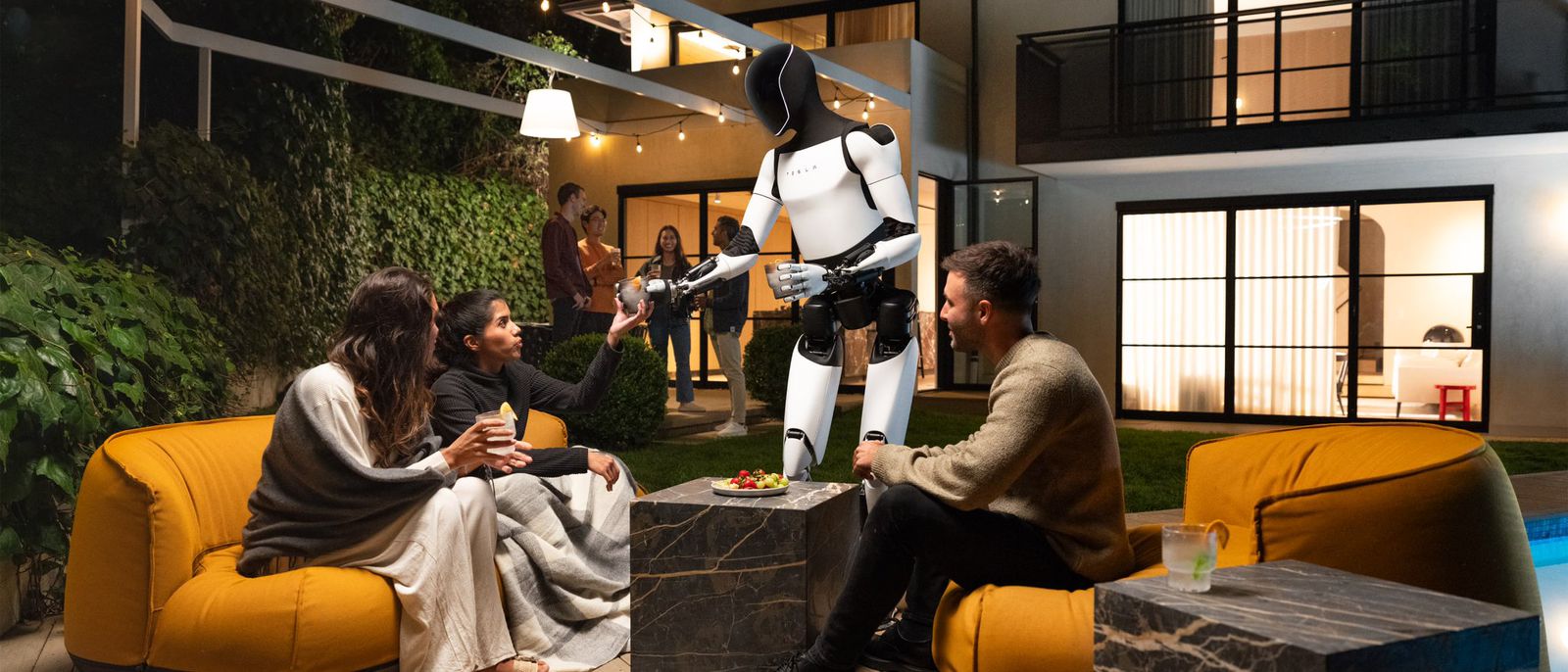Schedule | - 10:20 am
At the ‘We, Robot’ Event, Tesla Presented the Novelty as “The Greatest Product of All Time”

It looks like one of those futuristic movies, but it’s real life. You look at the screen and see robots that walk, talk, and suddenly replace human beings. Then comes that nervous laugh: “Imagine if that really happens!”
Well, what seemed distant has arrived faster and faster than we expected. At the technological event ‘We, Robot,’ which took place in California, entrepreneur Elon Musk officially presented the humanoid robot Optimus to the world.
The project has rapidly evolved since it was first announced in 2021 and is expected to cost between $20k and $30k. The Tesla owner stressed that he “will be able to do anything,” such as walking pets, taking care of children, serving drinks, acting as a friend, etc.
It was more than a simple technological presentation. Optimus walked around the stage, lifted objects, served drinks, danced in a choreographed manner, and even played rock-paper-scissors with the participants.
This is not science fiction; it is reality knocking on our door, and what was once just fiction in movies is now materializing before our eyes. The most striking thing? Musk stated that the goal is for this robot to be affordable in the short term, to the point of becoming an ordinary item in factories, companies, and even in our homes.
Of course, at first glance, technology is fascinating. Imagine having a robot that does boring, heavy, or dangerous tasks for you. It sounds great! After all, humans already use technology to their advantage. However, at the same time, this new advancement is very scary. If Optimus can perform all the functions mentioned, where does the human being fit into this equation?
A new machine capable of performing human tasks with frightening precision raises crucial questions. And we’re not just talking about lost jobs; we’re talking about something bigger. If a machine can replicate what we do—perhaps even better—what does that say about our existence?
Robots, artificial intelligence, and other technologies are increasingly gaining ground. It is naive to think that this will not bring about social changes.
In movies, we usually root for humans to win and for technology not to turn against us. But what about in real life? The story may be darker than we imagine.
Will we be able to adapt, or will we just be spectators in an era where technology will swallow us whole?
The future has arrived sooner than expected, and the big question is: Are we prepared for it? These are serious questions about our essence that cannot go unnoticed.